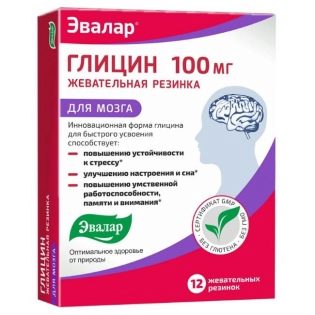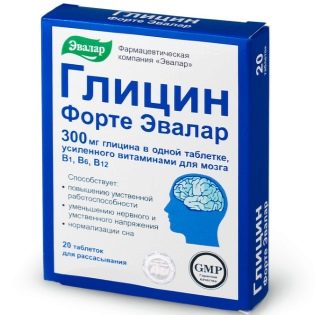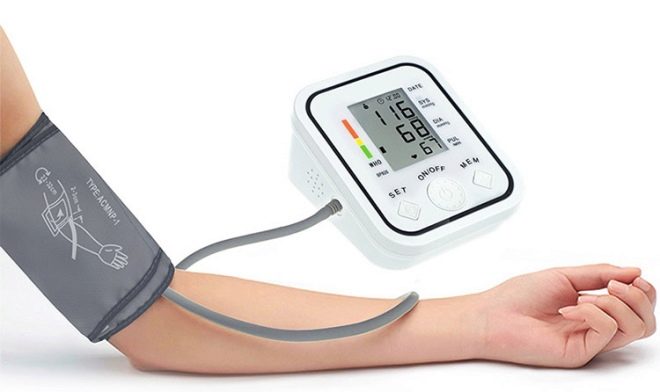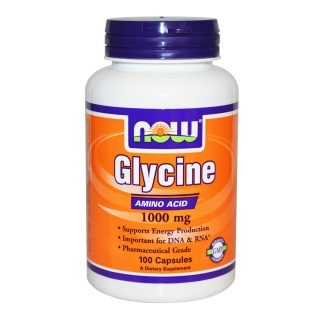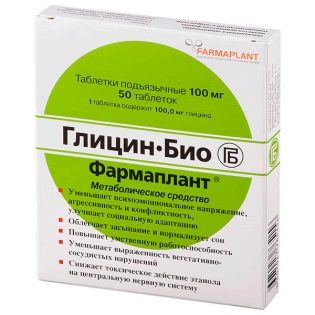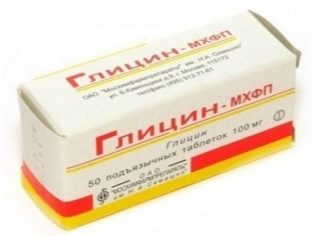"Glycine" for a nursing mother: instructions for use
The postpartum period is not easy for most women. At this time, they have a lot of worries and experiences, so anxiety is often intensified and sleep is disturbed, mood swings and emotional outbursts are observed. To relieve nervous tension and eliminate anxiety, the doctor may prescribe a nursing mother, Glycine. This tool has a mild sedative effect and increases the body's resistance to the effects of stress factors.
What is this drug?
Glycine is one of the amino acids that are formed in the human body, so it is considered interchangeable. We also get this amino acid from various foods, for example, from beef, nuts, oatmeal or liver. The name of this amino acid and gave the name of the drug "Glycine", as it acts as its main component.
The drug is represented by tablets, which have a sweet taste, white color and a cylindrical flat form. Each tablet contains 100 mg of glycine, to which a small amount of magnesium stearate and methylcellulose is added to make the preparation dense.
"Glycine" is sold without a prescription in packs of 10, 20 or 50 tablets, stored at home at temperatures below +25 degrees, and its shelf life is 3 years.
The drug must be absorbed in the mouth, putting the tablet under the tongue or cheek. With this method of application, glycine will penetrate into the blood and be transferred to brain cells, where it will affect the processes of arousal (reduce them) and inhibition (strengthen them).
Thanks to this action, the functioning of the central nervous system is normalized, and the patient's psycho-emotional state improves. In addition, taking "Glycine" reduces the harmful effects of drugs that can inhibit the work of the brain.
Is it used when breastfeeding?
In the annotations to the pills there is no ban for women who feed the baby. Such a drug should not be taken only in case of intolerance to its ingredients. In other cases, "Glycine" is not contraindicated.Because it differs by its natural origin, it acts on the woman's body rather gently, and the concentration of glycine after taking pills in breast milk is so small that it is unable to affect the condition of the infant.
Tablets are often used as a natural sedative that helps normalize sleep. "Glycine" is recommended to protect the nervous system from heavy loads, which a woman is very susceptible in the first months after birth. The drug is in demand, if a nursing mother has severe fatigue, appetite deterioration, nervousness, weakness, intermittent and disturbing sleep.
Taking pills helps to avoid overwork, normalizes brain function, improves the rhythm of sleep and rest.
Such a tool will be a good prevention of neurosis and depression, which often appear in newly-born mothers. Thanks to “Glycine,” a woman will be more relaxed and will be able to adequately respond to various difficulties associated with caring for babies. She will improve performance, improve mood and decrease anxiety.
But, despite the harmlessness of this medication for the crumbs, before using "Glycine" during breastfeeding, consultation with a doctor is required.The specialist will select the optimal regimen and monitor the condition of the mother and baby in order to cancel the remedy in time or supplement the treatment with other drugs.
In addition, before taking any medication It is worth trying to influence the state of the nervous system with non-drug means and try to eliminate the cause of the nervous overstrain.. For example, a nursing mother can drink herbal tea with a soothing effect, listen to classical music, take a bath with valerian and lavender, do a relaxing massage, shift some of the worries to your spouse and relax.
Instructions for use during breastfeeding
The dosage of "Glycine" for a nursing mom should be determined by the doctor, but most often a single dose is one tablet. It is necessary to dissolve the medicine under the tongue 2-3 times during the day. Swallow the drug should not, because with prolonged resorption of glycine will be absorbed into the capillaries under the tongue and reach the brain cells, and if swallowed, it will be involved in the digestive process and all the effects on the nervous system will be absent. However, it is permissible to crush a pill into powder and dissolve in such a crushed form.
It is known that single use of "Glycine" is ineffectivetherefore, the drug is usually prescribed by course. Its duration can range from one week to one month, depending on the state of the woman and the response of her body to treatment. If a second course is required, it is usually prescribed after a month's break.
Can it hurt?
Although in rare cases, but "Glycine" can cause an allergic reaction. It is usually manifested by a rash or itching, but it can also be in the form of other allergy symptoms. Note that the reaction is possible in both mother and baby. For any manifestations of hypersensitivity taking pills should be abandoned.
Reception of "Glycine" is also not recommended for lactating mothers with reduced blood pressure.
If a woman does decide to drink pills for hypotension, she should monitor the pressure indicators daily and stop taking the drug with a significant decrease.
The harmful effects of the drug is possible even if its dosage is exceeded. If you take a lot of pills at the same time, you may experience dizziness, nausea, and other negative symptoms. Besides at high doses, the baby may respond to "Glycine" with various disorders. Sometimes the child becomes sluggish and drowsy, refuses to breast, and in some cases, on the contrary, does not sleep well, cries for a long time and behaves excitedly. In such situations, you need to consult a doctor.
Reviews
According to doctors, "Glycine" helps well with anxiety, unrest and other mental disorders, which are often in nursing mothers and can be transmitted to infants. They confirm that this drug is harmless to the infant and can be taken during breastfeeding, but only after the appointment of a specialist. Independent administration of such pills without consulting a doctor is not recommended.
According to reviews of lactating women, "Glycine" has an average efficiency. Such a medicine cannot cope if the stress is strong, but its action is accompanied by increased anxiety, worsening of sleep, depressed mood is positive.. This means is generally well tolerated, without affecting lactation and the condition of the infant. The advantages of "Glycine" include the fact that the drug is affordable - an average of 50 tablets you need to pay 30 rubles.
What to replace?
Buying "Glycine" in a pharmacy, you can encounter counterparts who have a similar name. Usually it additionally contains a word or abbreviation indicating the manufacturer, for example, "Glycine-Bio" or "Glycine-MHPP". Such drugs also contain glycine in a dosage of 100 mg and can be used with the same indications. There is also "Glycine Forte" with a higher content of the active substance - 250 mg per tablet.Its use is permitted when breastfeeding, but must be monitored by a doctor.
In addition to medication with the prefix "forte", you can also see a dietary supplement in pharmacies called Glycine Forte Evalar. In addition to 250 mg of glycine, these tablets also contain three B vitamins (B1, B6 and B12), which increases the effect on the brain. Take them when breastfeeding manufacturer does not recommend.
Replace "Glycine" with nerve overloads and anxiety can be pills "Valerian". Such a herbal remedy has a calming and relaxing effect, therefore it is recommended for insomnia, nervousness, depression, chronic fatigue and severe stress. But, like all herbal preparations, “Valerian” can provoke allergies and other adverse symptoms, so taking this medicine during breastfeeding should be coordinated with your doctor.
Read more about the drug "Glycine" - the following video.


